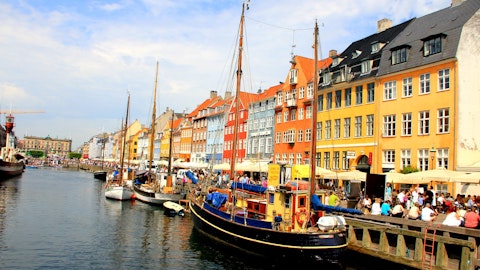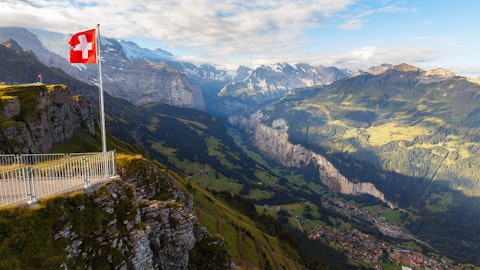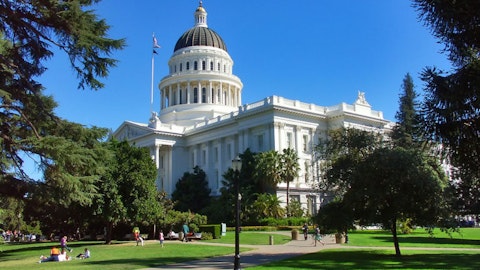In this article, we will look at the top 5 democratic socialist countries in Europe. We have also discussed the meaning and characteristics of a social democratic country in another article. If you are interested in reading about that along with a more extensive list, head straight to the Top 15 Democratic Socialist Countries In Europe.
5. Belgium
Government Expenditure: 7
Social Progress Index: 13
Average Ranking: 10
In 2021, the country’s public procurement spending was notably high, accounting for 15.2% of its GDP, surpassing the OECD average of 12.9%. Moreover, satisfaction with public services surpasses OECD averages: health care satisfaction stands at 90%, education at 75%, and administrative services at 71%. However, trust in public institutions falls below OECD standards: only 32% trust the national government, 49% trust local government, and 41% trust the civil service, while trust in parliament is at 33%.
It is one of the most egalitarian countries in the world.
4. Austria
Government Expenditure: 9
Social Progress Index: 11
Average Ranking: 10
Austria exhibits strong performance in key areas of public governance, with high levels of satisfaction with public services, notably in healthcare (81%) and the judiciary (76%). Although trust in public institutions is slightly below average, Austria’s commitment to stakeholder engagement in decision-making (IGI score of 0.51) and ethical AI usage demonstrates dedication to democratic resilience.
It is also one of the highest paying countries for physiotherapists in the world.
3. Sweden
Government Expenditure: 15
Social Progress Index: 5
Average Ranking: 10
Sweden’s public sector is highly stable, with government spending at 49.2% of GDP in 2019, primarily allocated to social protection. 28.6% of the workforce is employed in the general government sector. Sweden excels in gender equality as women occupy 55% of senior government roles and 47% of parliamentary seats. However, it lags in digital government, ranking last in the OECD Digital Government Index, particularly in meeting people’s needs.
2. Iceland
Government Expenditure: 14
Social Progress Index: 4
Average Ranking: 9
In 2019, Iceland allocated 43% of its GDP to public expenditure, with 24% of its workforce employed in the general government, the fourth highest among OECD countries. Moreover, it directed 32.7% of its public spending towards employee compensation, the highest in the OECD. Despite this, Iceland ranks poorly in digital governance, occupying the penultimate position in the OECD Digital Government Index, particularly lagging in data accessibility. Conversely, it has the lowest poverty rate in the OECD at 4.9%.
1.Finland
Government Expenditure: 8
Social Progress Index: 3
Average Ranking: 5.5
Finland stands out among OECD countries for its extensive social safety net, allocating 24% of GDP to social protection which is twice the OECD average. While youth inclusion in politics is notable, Finland falls short in government employment diversity, with only 17% aged 18-34. Nonetheless, Finnish citizens exhibit high confidence in their national government (81%) and top the OECD charts in satisfaction with the education system (87%) and trust in the judiciary (81%). It is the most democratic social country in Europe.
Insider Monkey focuses on uncovering the best investment ideas of hedge funds and insiders. Please subscribe to our free daily enewsletter to get the latest investment ideas from hedge funds’ investor letters by entering your email address below. You can also take a peek at 25 Freest Countries in the World and 20 Least Egalitarian Countries in the World.





